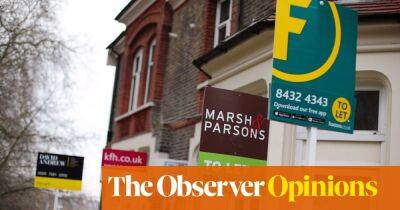‘What’s my future?’: millennials and Gen-Z grapple with cost of living crisis
Like many people across the UK, Luke Downham, 26, has found himself living pay day to pay day as the cost of living crisis intensifies.
During the pandemic, he was able to save money and pay off student debt. Relocating to Manchester in 2021, he started a new job as a biomedical scientist for the NHS with the belief that life was improving.
But as inflation hits a 40-year high, Downham’s rent is due to increase by 10% this month. He has since taken out a consolidation loan to pay off rising debts. He said it was difficult to live every month waiting to get paid.
“It’s pretty depressing because I’m just kind of starting my life. I feel a bit taken aback,” said Downham. “I feel like my friends and family are all in a similar situation. This world is not sustainable.”
The trend of Britons in precarious positions has worsened in recent months as the increased cost of living puts a strain on living standards, with the lowest-paid and most vulnerable suffering most.
The Gen Z and millennial generations, confronting inflation for the first time, are also vulnerable to the slump. Nearly half spend their entire monthly income on living costs, according to a recent survey by Deloitte, while two in five have taken on additional work to make ends meet.
A recent report by a leading anti-poverty charity found that young people on low incomes – those in the bottom 40% of household incomes – are disproportionately affected. According to the Joseph Rowntree Foundation (JRF), more than 70% of low-income households with an 18- to 24-year-old were in arrears with at least one household bill, and more than 80% of with an 18- to 34-year-old are going without essentials.
“We may see more young adults having to move home, particularly if you’re
Read more on theguardian.com



![Cardano [ADA]: A lot of hype around Vasil, but where’s the cigar - ambcrypto.com](https://finance-news.co/storage/thumbs_400/img/2022/8/27/38716_zl31.jpg)
















